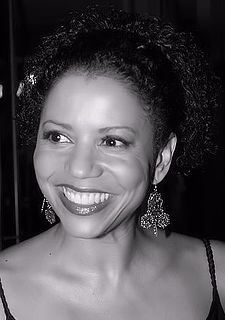A Quote by Gloria Steinem
I think we spend a lot of time denying our mothers. We understand other women earlier than we understand our mothers because we're trying so hard to say, "I'm not going to be like my mother" that we blame her for her condition. If we didn't blame her for her condition, we would have to admit that it could happen to us, too. I spent a long time doing that, thinking that my mother's problems were uniquely her fault.
Related Quotes
Nearly every morning, a certain woman in our community comes running out of her house with her face white and her overcoat flapping wildly. She cries out, "Emergency, emergency," and one of us runs to her and holds her until her fears are calmed. We know she is making it up; nothing is has really happened to her. But we understand, because there is hardly one of us who has no been moved at some time to do just what she has done, and every time, it has taken all our strength, and even the strength of our friends and families, too, to keep us quiet.
But her name was Esmé. She was a girl with long, long, red, red hair. Her mother braided it. The flower shop boy stood behind her and held it in his hand. Her mother cut it off and hung it from a chandelier. She was Queen. Mazishta. Her hair was black and her handmaidens dressed it with pearls and silver pins. Her flesh was golden like the desert. Her flesh was pale like cream. Her eyes were blue. Brown.
But if you ever bring her back damaged again - and I don't care whose fault it is; I don't care if she merely trips, or if a meteor falls out of the sky and hits her in the head - if you return her to me in less than the perfect condition that I left her in, you will be running with three legs. Do you understand that, mongrel?
Christianity only hopes. It has hung its harp on the willows, and cannot sing a song in a strange land. It has dreamed a sad dream, and does not yet welcome the morning with joy. The mother tells her falsehoods to her child, but, thank heaven, the child does not grow up in its parent's shadow. Our mother's faith has not grown with her experience. Her experience has been too much for her. The lesson of life was too hard for her to learn.
All of us--all who knew her--felt so wholesome after we cleaned ourselves on her. We were so beautiful when we stood astride her ugliness. Her simplicity decorated us, her guilt sanctified us, her pain made us glow with health, her awkwardness made us think we had a sense of humor. Her inarticulateness made us believe we were eloquent. Her poverty kept us generous. Even her waking dreams we used--to silence our own nightmares.
Initially, the only thing that mattered to me - I was too young to understand the politics of the day - was that there was a woman who was covering the NFL. I asked my mom if I could be a sportscaster when I grew up. My mom was an adventurous spirit herself. Much to my mom's credit, she said, "Yes, you can." It didn't matter to her that no other women were doing it at the time. It didn't matter to her that there was a double standard. It just mattered that her daughter had a dream and she was going to help her pursue that.
The good enough mother, owing to her deep empathy with her infant, reflects in her face his feelings; this is why he sees himselfin her face as if in a mirror and finds himself as he sees himself in her. The not good enough mother fails to reflect the infant's feelings in her face because she is too preoccupied with her own concerns, such as her worries over whether she is doing right by her child, her anxiety that she might fail him.






































